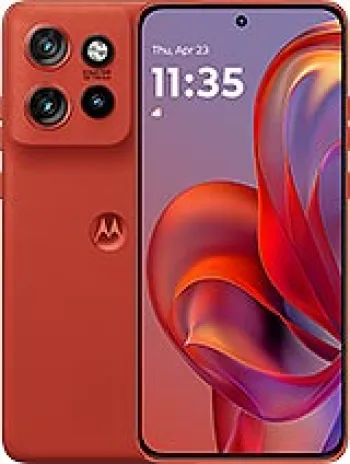
Introduction to Motorola D520
The Motorola D520 was launched in 1998, and it marked another step in the evolution of mobile telecommunications. During a period when cell phones were gradually becoming indispensable tools for communication worldwide, the D520 stood out as a device pertinent to that era, reflecting a mix of rudimentary technology and user-friendly features that were considered state-of-the-art at the time.
Design and Build
The Motorola D520 had a distinctive design typical of late 1990s mobile phones. It featured dimensions of 140 x 50 x 27 mm, and weighed 170 grams, which made it relatively bulky by today's standards. However, this size was quite common back then, and its robustness provided a sense of durability. The device was available in three different colors, offering a slight level of personalization for users. It was built using a mix of durable plastic materials that could withstand the wear and tear of daily use.
Display Specifications
The phone featured a monochrome graphic display, capable of showing two lines with twelve characters each. This kind of display was quite basic, yet it served its primary purpose of conveying essential information such as call status, received messages, and menu navigation. The lack of a complex graphical interface meant that power consumption was minimal, contributing to the extended battery life of the device.
Network and Connectivity
The Motorola D520 operated on GSM technology, specifically on the GSM 900 band. At that time, GSM was the leading mobile communication standard, providing reasonable call quality and network coverage. However, the device did not support modern data services like GPRS or EDGE, which means users were limited to basic voice calls and SMS for communication. There were no features for Bluetooth, WLAN, or USB connectivity, highlighting its focus purely on telecommunication rather than internet access or file sharing.
Battery Life
One of the most significant strengths of the Motorola D520 was its battery endurance. It housed a removable NiMH battery with a capacity of 650mAh. This battery could support up to 60 hours of standby time and offered a talk time of approximately 180 minutes. The simplicity of the device, coupled with the efficiency of the monochrome display, greatly benefited its power management.
Sound and Alerts
This device featured monophonic ringtones, which was customary for that period. Despite the lack of a loudspeaker or advanced sound system, users could choose from various monophonic ringtones for call alerts. It did not include a 3.5mm headphone jack, making it clear that the D520 was devoted to telephonic functions rather than multimedia or music playback capabilities.
Messaging and Communication Features
The Motorola D520 enabled users to send and receive SMS messages, which were already becoming a popular mode of communication during this time. The phone stored contacts within the SIM card rather than an internal phonebook, due to its lack of considerable onboard memory which limited it to basic messaging functionality.
Additional Features
As a feature phone, the Motorola D520 was devoid of many of the elements found in smartphones today. It did not come with pre-installed games, did not support Java applications, or have a built-in browser. Features like sensors, an alarm clock, or even a basic calculator were absent, underlining the phone's role as a straightforward communication tool. It was purely a pragmatic device focused on providing reliable voice calls and text messaging.
Market Reception and Legacy
At the time of its release, the Motorola D520 garnered attention for its straightforward usability and robust build quality. While it may seem inadequate compared to modern smartphones, it suited the needs of users in the late 1990s, who valued a dependable device primarily for making calls and sending texts. Today, devices like the D520 are nostalgically regarded as stepping stones in the evolution of personal mobile devices, reflecting how far technology has progressed in ensuring connectivity.
Conclusion
In essence, the Motorola D520 served as a reliable and straightforward communication device in its time. Despite its limitations by today’s standards, it remains a part of the interesting history of mobile telecommunications development. It highlights a period where mobile phones transitioned from luxury items into a household necessity, paving the way for future innovations and the sophisticated smartphones we rely on today.
Key Features of Motorola D520
- GSM 900 Network Support
- Compact Design (140 x 50 x 27 mm)
- Lightweight for its time (170 g)
- Monochrome Graphic Display
- Mini-SIM Card Support
- Removable NiMH 650 mAh Battery
- SMS Messaging Capability
- Available in 3 Colors
Disadvantages of Motorola D520
- No GPRS or EDGE support for data connectivity.
- Discontinued status, making it difficult to find support or replacements.
- Bulky and heavy design with dimensions of 140 x 50 x 27 mm and weight of 170 g.
- Limited display with monochrome graphic and low resolution of 2 x 12 characters.
- No expandable memory card slot, reliance only on SIM for phonebook storage.
- No camera feature available.
- No loudspeaker and absence of 3.5mm audio jack.
- Missing modern communication features like WLAN, Bluetooth, and USB.
- No positioning (GPS) or radio features.
- Limited features with lack of clock, alarm, games, or Java support.
- Short battery life with stand-by time of 60 hours and talk time of 180 minutes.
- Only supports basic monophonic ringtones.
View Also
More Phones
All Rights Reserved +14266 Phones © Mobilawy 2025

























